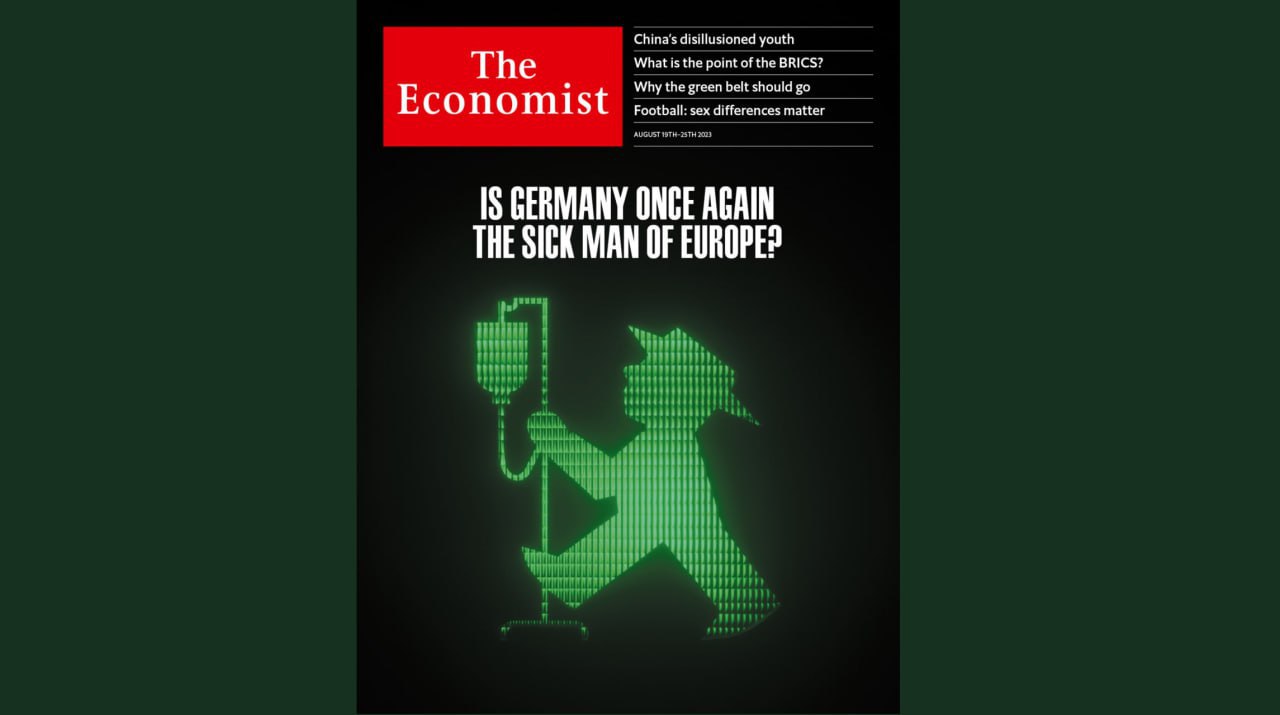The symptoms, according to the magazine, are as follows:
▪️ Europe’s largest economy has gone from growth leader to laggard – may be the only major economy to shrink in 2023. Germany will also grow slower than America, Britain, France, and Spain over the next five years, according to the IMF.
▪️ Germany has begun to be seen as an unsuitable place to live. Four out of five respondents felt this way.
▪️ Trains are now so badly delayed that Switzerland has banned latecomers from entering its territory. Foreign Minister Annalena Baerbock, who was stranded abroad for the second time this summer due to a malfunction of her outdated service plane, canceled a trip to Australia.
▪️ Bureaucracy flourishes – obtaining a license to operate a business takes 120 days – twice as long as the OECD average.
▪️ The industry is no longer a cash cow, the auto industry is already losing to China.
▪️ The country has huge problems with energy – there are no nuclear power plants, cheap gas from Russia has been abandoned, and the industry is very energy-intensive.
▪️ The population is aging, the shortage of teachers has become chronic, and getting a visa is easier for refugees than for professionals.
The magazine recalls that in 1999, Germany was in a bad shape too. Yet a series of reforms in the early 2000s ushered in a golden age.
What it doesn’t mention is that Gerhard Schröder, the man who would later call Vladimir Putin his friend, was in charge at the time. His reforms led to impressive results not without the help of cheap Russian resources.

